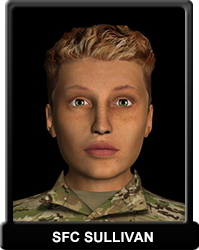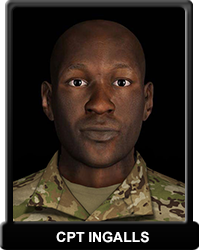Benefits of Relating Well to Others
Relating well to others impacts mission success in real and measurable ways. Review each of the benefits to learn more.
Judgment and Decision-Making
By relating well to others, leaders are able to:
- Sense how their decisions will be perceived by subordinates, peers, and superiors. For instance, if a leader knows that a particular subordinate is okay with a more directive style, telling that subordinate that vehicles need to be PMCS’d ASAP won’t cause an issue. In this case, the subordinate will understand that the leader isn’t being overly harsh but is communicating the importance of getting the task done quickly and correctly.
- Determine how to modify the decision or communicate about it based on this understanding. In cases where leaders don’t know a subordinate or know that the subordinate doesn’t respond well to harsh directives, they can adapt their approach. For instance, when dealing with a brand-new NCO who’s afraid of making mistakes, the leader can provide him with detailed guidance on getting vehicles PMCS’d quickly. That way, the NCO is more comfortable with the task and gets it done right.
Select the Soldier for an example of this benefit in action.
Leader Development
When leaders understand where their subordinates are in their development and who they are, they’re able to:
- Make more informed decisions about what kinds of development opportunities they need and want. By knowing a leader’s wants (i.e., goals and interests) and needs (i.e., weaknesses), you can find targeted developmental opportunities that align with his personal goals and help remediate his weaknesses.
- Be reasonably flexible to accommodate their varying needs. This helps counter junior leaders’ tendency to be inflexible and helps them understand that, while everyone should be treated fairly, they shouldn’t necessarily all be treated the same. For example, some may respond better to “tough love” while others may respond better to a more measured, less “tough” approach.
Select the Soldier for an example of this benefit in action.
Soldier Well-Being
Leaders who relate well to their subordinates are then able to:
- Anticipate their reactions and proactively recognize and address behavior triggers. For instance, some individuals easily adapt to unexpected changes, while others don’t. Leaders who relate well to their Soldiers will take steps to prevent stressors associated with change or know how to limit their effect on specific Soldiers.
- Identify and remedy underlying Soldier dissatisfaction issues. Are your subordinates acting differently than in the past? What has changed—did something occur, or did you do something that may be affecting them? Do they seem overwhelmed, stressed, or unhappy? What behaviors clue you into this?
Select the Soldier for an example of this benefit in action.
Situations without Hierarchy
In the Army, hierarchy ensures that most decisions and orders are followed, regardless of whether leaders try to relate to their subordinates. If a superior gives you an order, you have to comply.
However, in situations without rank and hierarchy, relating well to others becomes even more important. Think about how this plays out when working with civilians. Although this lesson focuses on providing you with strategies for relating to others within your chain of command, you can adapt them (and combine them with others) for use when relating to others outside your chain.
Select the Soldier for an example of this benefit in action.



